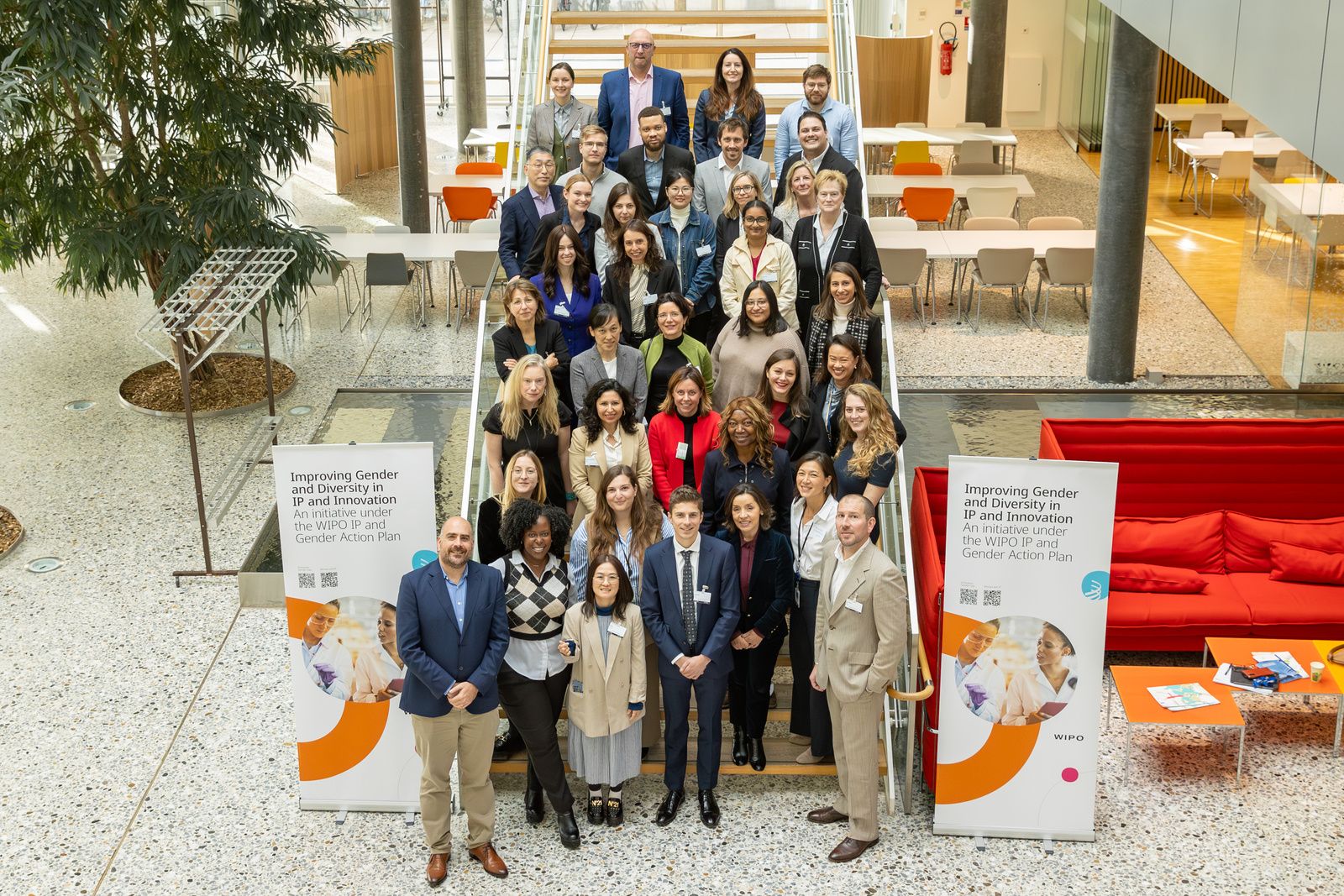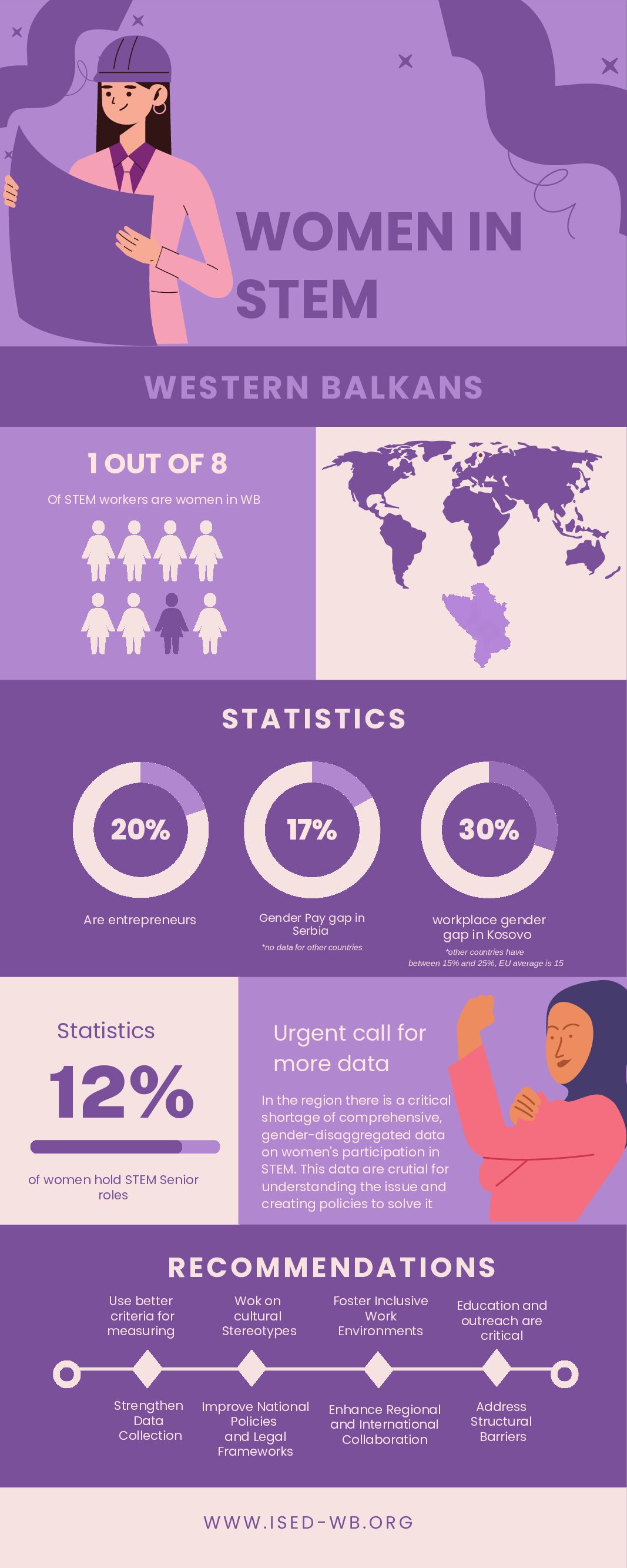
On November 25-26, WIPO hosted its first Global Research Experts Meeting on Improving Gender and Diversity in Intellectual Property (IP) and Innovation, a forum where academics, researchers, and policy experts from all over the world will convene to discuss emerging issues related to diversity and inclusion in innovation. ISED-wb was among the selected participants and is pleased to share the report on Woman in STEM in the Western Balkans that was presented.
This topic is crucial topic for socioeconomic growth in the Western Balkans. Greater representation of women in these high-impact fields can fuel innovation, meet labor demands, and contribute to EU integration efforts. Research presented examines gender disparities in STEM fields in the WB, shows current state, identifying barriers, ongoing initiatives, and potential strategies for fostering greater inclusion of women in these sectors, provide recommendations on good practices.


Source: Jelena Magnin presents the report at WIPO
Head of Development, Jelena Magnin, presented the report which addresses gender disparities in Science, Technology, Engineering, and Mathematics (STEM) fields in the Western Balkans. Despite progress in educational attainment, women remain significantly underrepresented in these professions, particularly in leadership roles, across the region. This paper identifies a research gap in the understanding of gender disparities in and examines the current state of policies addressing these issues. Data is synthesed from a variety sources including World Bank, UNDP, and national statistical offices, to bridge the gaps in existing research. The analysis reveals that while some countries have made small progress in promoting gender diversity in STEM but persistent challenges—including deep-rooted gender stereotypes, cultural norms, and structural barriers—continue to hinder women’s participation and advancement. A significant obstacle is the lack of comprehensive, gender-disaggregated data, which complicates efforts to develop effective, targeted policies. Additionally, critical data on other factors such as women’s participation in innovation, the number of patents filed by women, the representation of women entrepreneurs, and the extent of gender budgeting remains largely unavailable. This data scarcity highlights the urgent need for clear policy directives that prioritize the collection and analysis of such information to inform future research and policy development.
This research presents unique cross-regional insights and recommends actionable steps to enhance gender equality in STEM and beyond. These include improving data collection, strengthening regional cooperation, fostering supportive work environments, and implementing gender-focused policies and mentorship programs. Addressing these challenges and building on regional and international partnerships will be crucial for the Western Balkans to close the gender gap in STEM, driving sustainable development and supporting their EU integration efforts.


What an insightful article. Glad to see an article exploring the subjugated section of this lesser known, but critical and vibrant region. Hopefully we see all this untapped potential come to the forefront.